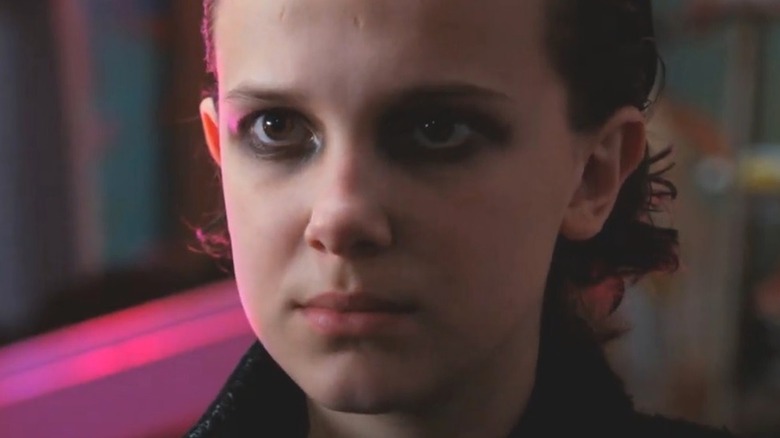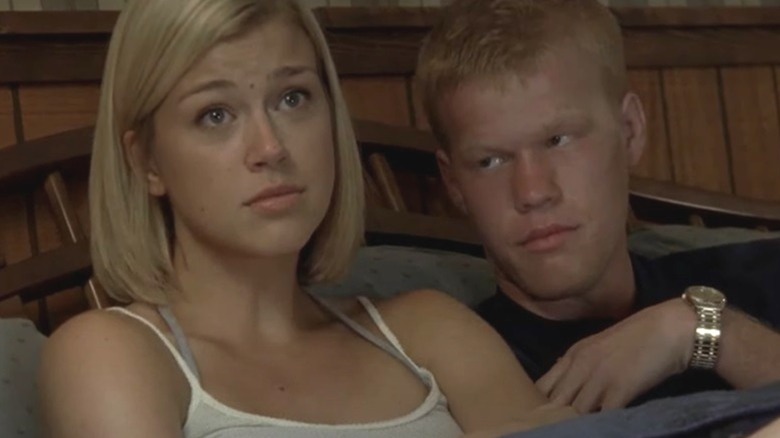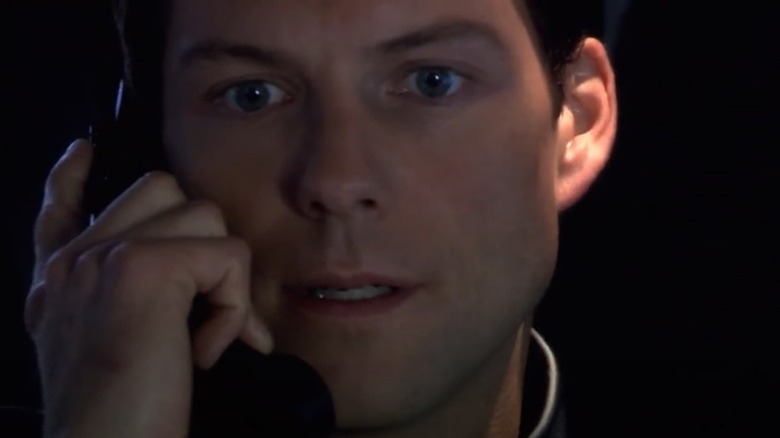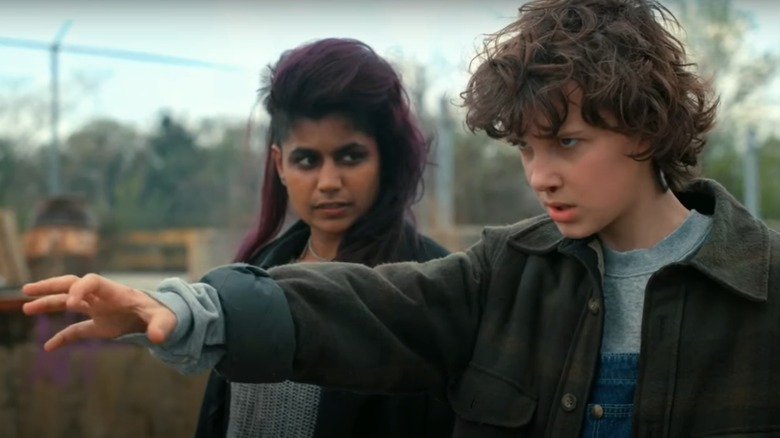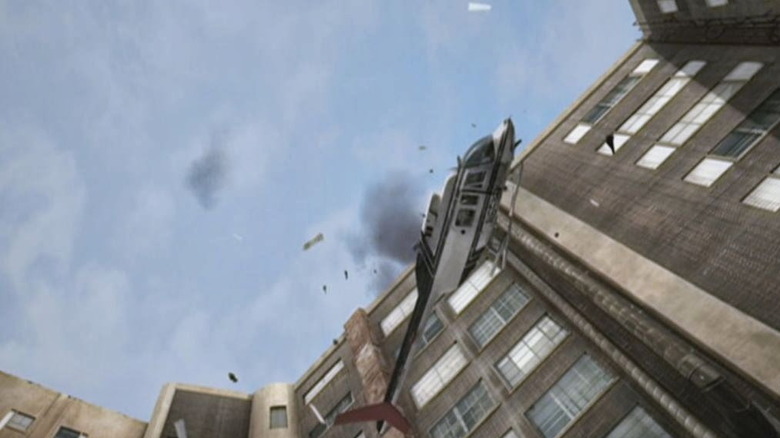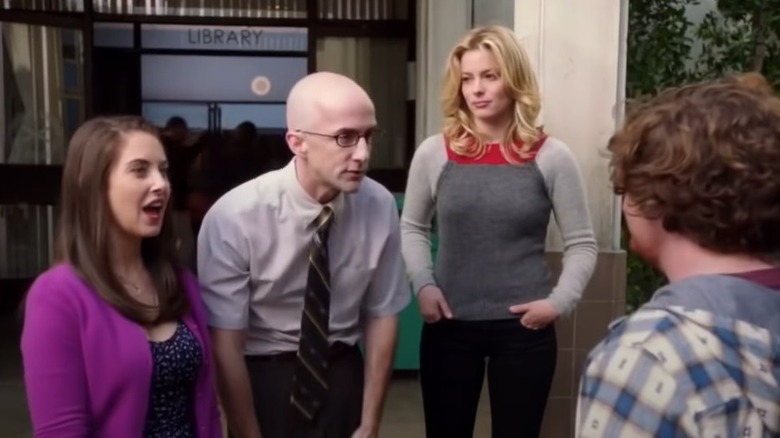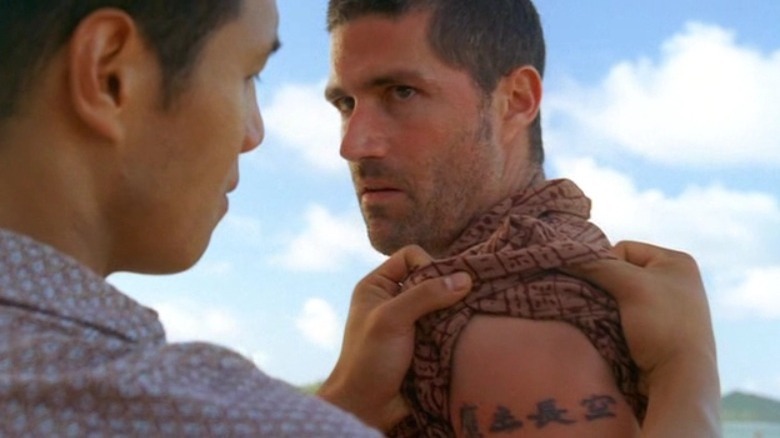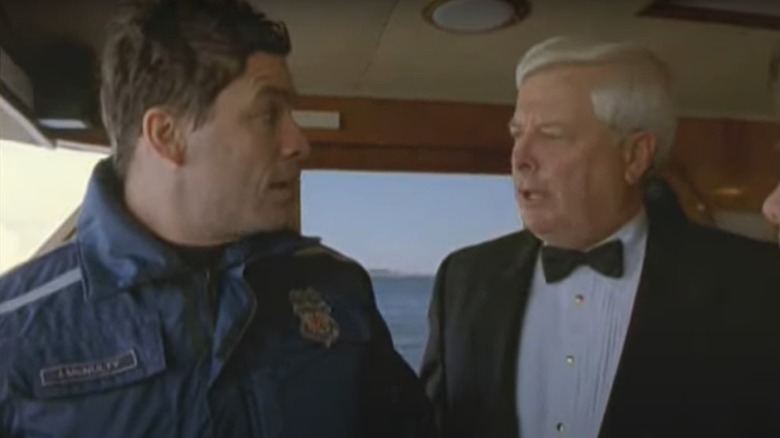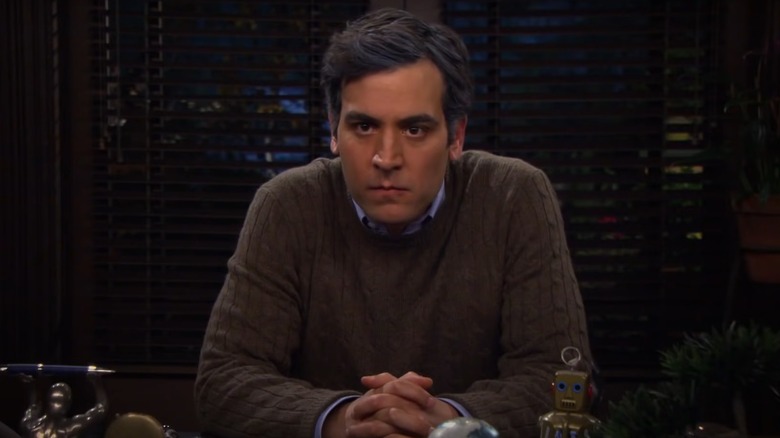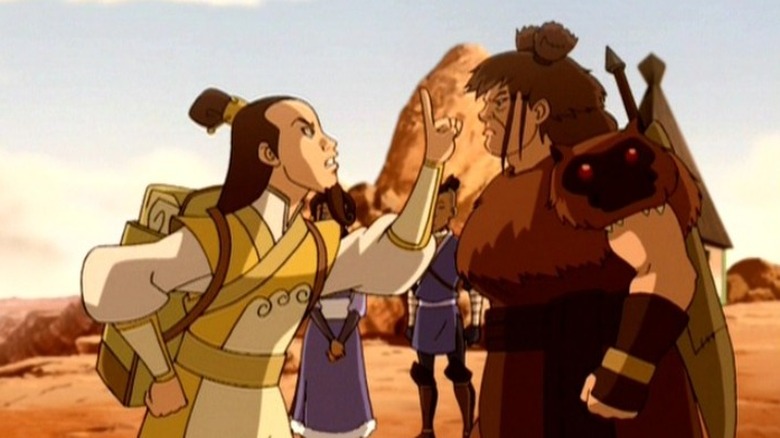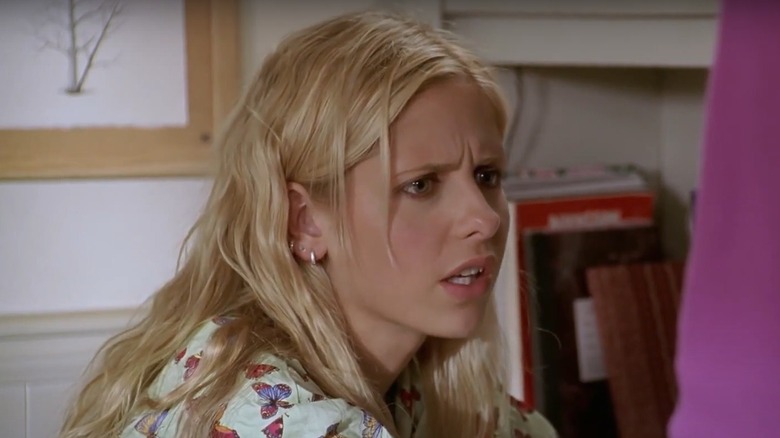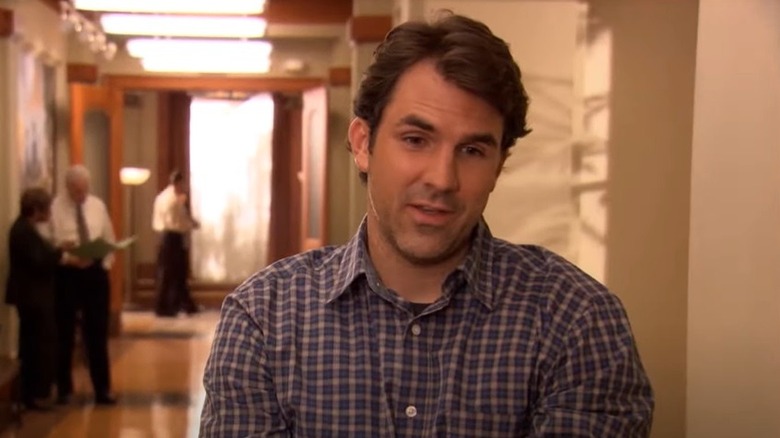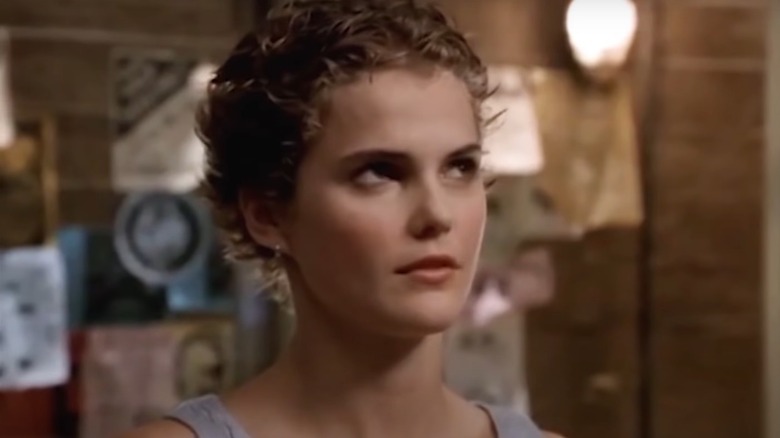Disastrous TV Episodes That Nearly Ruined The Whole Series
We may be living in the golden age of television, but very few TV shows are perfect. Even the best shows aren't immune to the odd dud episode, ones so jarring that they threaten to alter the entire landscape of a series, perhaps influenced by clueless network executives or writers without a clear plan. TV shows seem simple to us when we're watching them from the comfort of our homes, but there are hundreds of people and thousands of moving parts behind every episode. Some episodes are so disastrous that we begin to see the cracks in the foundation. When this happens, our commitment to tuning in next week (or just letting the next episode play) is sometimes in jeopardy.
The following shows all contain episodes that stand out like sore thumbs, episodes that represent a bizarre and momentum-killing shift off course. Bad episodes of good shows are part of what makes them great: It clarifies what we love about a show when there's an episode so terrible that it takes us out of the story. Here are some TV episodes so disastrous they nearly ruined the whole series.
Friday Night Lights - Last Days of Summer
After a critically acclaimed debut season, "Friday Night Lights" kicked off Season 2 with a bang — or, more precisely, a thud and a splash. Landry whacked Tyra's creepy attacker with a pipe, and they dumped his body in a river. Suddenly, a show that was a little cheesy but otherwise grounded in a nuanced, realistic depiction of Texas life turned into an over-the-top melodrama, at least for two of its characters.
Actors Jesse Plemons and Adrianne Palicki do a decent enough job with the material, but this bizarre subplot belongs in another show. If we wanted to see a murder and a slowly unraveling cover-up, we would have tuned in to a soap opera. The killing of the random stalker guy screamed network interference and distracted viewers from the other parts of the story. Who cares that Coach Taylor has to end his paternity leave early or that Julie feels hemmed in by her first serious relationship when there's a dead body in the river?
"Friday Night Lights" would eventually resolve the subplot with relatively little consequence and go on to earn its place in our hearts, but Season 2 opener "Last Days of Summer" remains its low point.
Battlestar Galactica - Black Market
In retrospect, "Battlestar Galactica" would have been even better if it hadn't been so committed to the old model of the 22-episode season, as it tended to have a couple of random filler episodes each year. No episode is more skippable than Season 2's "Black Market," which seems like a classic case of writers trying to fit a square peg into a round hole. The episode is about an investigation into an off-book black market that's supposedly impossible to corral. When Commander Fisk is found dead, Captain Apollo begins digging and discovers that Fisk was involved in the black market.
After nearly thirty episodes of the show, we learn that Apollo has a long-lost love from back home that he's never once mentioned and a relationship with a woman that he regularly sees in the fleet, despite his tension with Starbuck. At the end of the episode, after killing a couple of gangsters, he allows the rest of the villains to keep doing their black market thing so long as they stop killing ship commanders and trafficking humans. It's a thoroughly nonsensical episode, one so bad that "Battlestar Galactica" had to pull out all the stops with the brilliant, season-ending time jump on New Caprica to make us forget it.
Stranger Things - The Lost Sister
"Stranger Things" is lucky that it's a streaming show: If fans had been forced to wait an entire week after the Season 2 episode "The Lost Sister," they might have revolted. Every subsequent season of "Stranger Things" has replicated the formula of the first, more or less successfully. Co-creators Matt and Ross Duffer are pros at stretching a feature film-worthy adventure into eight or nine hours of television. By Episode 7, we're usually hurtling towards some big confrontation, but "The Lost Sister" halted that momentum to follow Eleven on a standalone side quest to Chicago to reconnect with another experimentee from her past.
She ends up with slightly enhanced powers and a cool new goth-chic vibe, but not much else of relevance happens. It's a complete wrench in what was a well-oiled, binge-worthy machine of a show. In a world where "Stranger Things" aired weekly on cable, fans would have spent seven long days seething. Luckily, all they had to do was take a deep breath and let Netflix play Episode 8 automatically.
ER - Freefall
NBC's "ER" was once the epitome of prestige network drama. It was a serious, gripping portrayal of the passionate people saving lives in a Chicago emergency room. While it dabbled in the occasional ratings stunt with plotlines involving escaped convicts, serial killers, or George Clooney rescuing a kid trapped in a storm drain, for the most part, it aimed for a realistic, grounded sense of what life working in a hospital would be like.
As the years went on, the cast changed and the writers needed to up the ante. In the Season 10 episode "Freefall," Dr. Romano is crushed by a falling helicopter in a scene that unfolds impossibly slowly and with hilariously bad CGI, even for 2003. This came after Dr. Romano had an arm cut off by a helicopter rotor the previous season. "ER" would run for 15 seasons in total, so "Freefall" didn't outright ruin it. But "dropping the helicopter" may as well be a more modern way of saying "jumping the shark," because the show was impossible to take seriously from that point.
Community - Economics of Marine Biology
In truth, any episode from "Community" Season 4 would be right at home on this list. Creator Dan Harmon got forced out by NBC after Season 3, but the show continued for an entire season before he got reinstated, stumbling from one episode to the next. It retained most of the writing staff, but they took the show in a lighter, safer direction, and it was terrible.
"Intro to Felt Surrogacy," an episode that utilized puppets of the main cast, felt like a pale imitation of the claymation episode from Season 2, "Abed's Uncontrollable Christmas." Another low point was "Heroic Origins," in which Abed discovers the group had all crossed paths before meeting at Greendale, essentially retconning the pilot episode.
The lowest low point was "Economics of Marine Biology," the poorest-rated "Community" episode on IMDb with a score of just 6.7. It centers around the college getting ready to woo a potential new student with lots of money. This uninspired episode follows "a typical sitcom formula," said Den of Geek, which "makes for very bland television."
Lost - Stranger in a Strange Land
Even by the standards of "Lost" Season 3 (which is notoriously all over the map as the writers kill time without a clear plan), "Stranger in a Strange Land" might be the most inconsequential, pointless episode of the show. Some mildly gripping nonsense with the Others happens on the island, while the flashbacks clue viewers in on a mystery nobody was wondering about: What is the meaning behind Jack's terrible tattoos?
In a painfully pointless series of events, Jack has a brief fling with a mysterious tattoo artist in Thailand and then gets beaten up. In the present, we learn that his ink translates to "He walks amongst us, but he is not one of us." So either Jack is like Jesus in that he is "in the world, but not of the world," or he's literally just marked as a tourist. Either way, "Stranger in a Strange Land" is an hour that even the biggest "Lost" fans wanted back.
The Wire - Ebb Tide
"The Wire" is universally regarded as one of the greatest shows of all time, and it's kind of reductive to think of the Season 2 premiere "Ebb Tide" as "disastrous" in any real sense. That being said, fans of the show often find themselves urging newcomers to "stick with it" during the first season when its slow, dense storytelling makes it somewhat difficult to follow. It's the same at the start of Season 2, when the show abruptly introduces the Stevedores at the city docks and eventually ties it back around to the drug trade that we were just gripped by.
It's an eternal debate: Did "The Wire" have to teach you how to watch it as it went along, or could it have been less dense and inaccessible? By the time it hit Season 3, 4, and 5, which expanded the show to include the politics, education system, and press of Baltimore, "The Wire" had gotten much better at integrating these whole new structures of society into a multi-faceted narrative. "Ebb Tide" stands out as the most jarring speed bump in an otherwise nearly-flawless television achievement.
How I Met Your Mother - Last Forever
After nine years, "How I Met Your Mother" delivered a polarizing finale. While it was clear that future Ted telling a rambling story to his children was just a fun framework for the show, it didn't mean that fans weren't invested in the resolution of Ted and Tracy's relationship. The showrunners underestimated how much ire the finale would generate by killing off the mother minutes after she and Ted finally met and then pawning future Ted off on future, still magically single Robin.
Whether or not it was planned all along, it turned what should have been a perfect landing from a beloved show into a bewildering re-framing of the entire story.
Avatar: The Last Airbender - The Great Divide
Even the most beloved shows have episodes that fans always tend to skip, and "The Great Divide" is the ultimate proof of that. This much-derided episode of "Avatar: The Last Airbender" suffers from being an entirely parenthetical entry with no relevance to any serial plot, as two bickering clans argue about how to cross a vast canyon. These tribes had never featured in the main story before this episode, and they were never seen again after it, making the whole thing a waste of everyone's time, from the animators to the audience.
As if to try and justify the episode's existence, our heroes get caught up in this petty drama and start acting out of character in ways that shoehorn moral lessons into a show that's otherwise known for restraint and subtlety. Aang resorts to deception, and Katara and Sokka get into a fight, just to mirror the silly tribes. "The Great Divide" united fans in condemnation, an episode that seems like it was written blind by someone that hadn't seen the rest of the show.
Buffy the Vampire Slayer - Beer Bad
Beloved as it is, "Buffy the Vampire Slayer" isn't a show famed for its consistency. It often relied on monster-of-the-week style episodes that were self-contained and not connected to each season's Big Bad, meaning it would usually have a few duds per year. Season 4's "Beer Bad" commits the cardinal sin that any self-respecting show about young people should avoid: It comes across like an after school special about the dangers of alcohol.
An enchanted beer causes Buffy to devolve into a primal, urge-based version of herself. She steals a sandwich, she starts to draw cave paintings on her dorm room wall, and she somehow gets a club as if she's cosplaying as a caveperson. This is all supposedly meant to illustrate how upset Buffy is about being dumped by some jerk. The story ends abruptly, without any consequences for the bartender that drugged a bunch of teenagers with magic beer. "Beer Bad" is bad TV, pure and simple.
Parks and Recreation - Rock Show
The first season of "Parks and Recreation" is nothing like the rest of the show. The main character, Amy Poehler's Leslie Knope, was essentially an even more boorish and awkward version of Michael Scott from "The Office," which it was clearly trying to imitate. The show had only a distant echo of the earnestness it would come to be known for, and if it had been canceled before Season 2, nobody would have batted an eyelid.
"Rock Show," the final episode of Season 1, veered into slapstick territory. Mark gets rejected by Ann — who had only been single for hours — and then makes a drunken attempt to kiss Leslie before falling into a pit. It's a weird and cringe-worthy end to a season that hit all the wrong notes, and could easily have been the last straw for execs. NBC, of course, gave it another shot, and the subsequent six seasons will live in the hearts of viewers forever.
Felicity - The List
Most millennials remember "Felicity," a show about the college life of Keri Russell's curly-haired eponymous character. They also likely remember that in the Season 2 episode "The List," Felicity cut her famous hair on a whim, causing shock and outrage in equal measure. Felicity's famous locks were part of her character, and when she said goodbye to them, some fans said goodbye to the show, seeing it as the end of a chapter.
What got lost in the reaction to Felicity's pixie cut is that a sudden, dramatic haircut is a pretty reasonable reaction to a breakup like the one she has with Ben in the episode. Thankfully, "Felicity" survived the dramatic haircut and went on to detail all four years of our heroine's college experience. The final season would end with a multi-episode time travel arc that's far more unique and memorable than the close-up snipping of some scissors.
